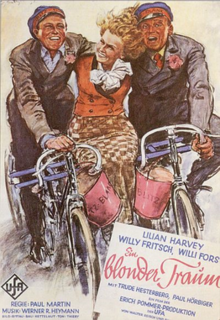
Heinrich Wilhelm "Heinz" Rühmann was a German film actor who appeared in over 100 films between 1926 and 1993. He is one of the most famous and popular German actors of the 20th century, and is considered a German film legend. Rühmann is best known for playing the part of a comic ordinary citizen in film comedies such as Three from the Filling Station and The Punch Bowl. During his later years, he was also a respected character actor in films such as The Captain from Köpenick and It Happened in Broad Daylight. His only English-speaking movie was the 1965 Ship of Fools.
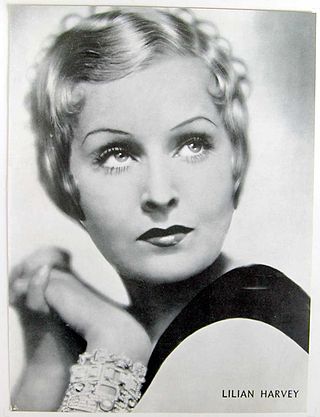
Lilian Harvey was a British-German actress and singer, long based in Germany, where she is best known for her role as Christel Weinzinger in Erik Charell's 1931 film Der Kongreß tanzt.
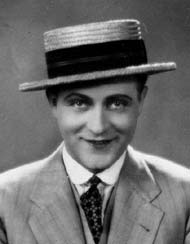
Willy Fritsch was a German theater and film actor, a popular leading man and character actor from the silent-film era to the early 1960s.

Der Kongress tanzt is a German musical comedy film produced in 1931 by Ufa, directed by Erik Charell, starring Lilian Harvey as Christel Weinzinger, the glove seller, Willy Fritsch as Tsar Alexander I of Russia and his doppelgänger, Uralsky, Otto Wallburg as Bibikoff, his Adjutant, Conrad Veidt as Prince Metternich, Carl-Heinz Schroth as his Secretary, Pepi, Lil Dagover as the Countess and Alfred Abel as the King of Saxony.

Geertruida Everdina Wilhelmina van Aalten was a Dutch actress who appeared in many German films in the 1920s and 1930s.

The Theft of the Mona Lisa is a 1931 German drama film directed by Géza von Bolváry and starring Trude von Molo, Willi Forst, and Gustaf Gründgens. It is based on a true story. It was shot at the Tempelhof Studios in Berlin. The film's sets were designed by the art directors Andrej Andrejew and Robert A. Dietrich.

Willi Forst, born Wilhelm Anton Frohs was an Austrian actor, screenwriter, film director, film producer and singer. As a debonair actor he was a darling of the German-speaking film audiences, as a director, one of the most significant makers of the Viennese period musical melodramas and comedies of the 1930s known as Wiener Filme. From the mid-1930s he also recorded many records, largely of sentimental Viennese songs, for the Odeon Records label owned by Carl Lindström AG.
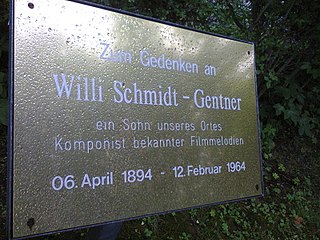
Willy Schmidt-Gentner was one of the most successful German composers of film music in the history of German-language cinema. He moved to Vienna in 1933. At his most productive, he scored up to 10 films a year, including numerous classics and masterpieces of the German and Austrian cinema.

Wiener Film is an Austrian film genre, consisting of a combination of comedy, romance and melodrama in a historical setting, mostly, and typically, the Vienna of the late 19th and early 20th centuries. The Wiener Film genre was in production between the 1920s and the 1950s, with the 1930s as its high period.
Happy Ever After is a 1932 British-German musical film directed by Paul Martin and Robert Stevenson, and starring Lilian Harvey, Jack Hulbert, Cicely Courtneidge, Sonnie Hale, and Edward Chapman.
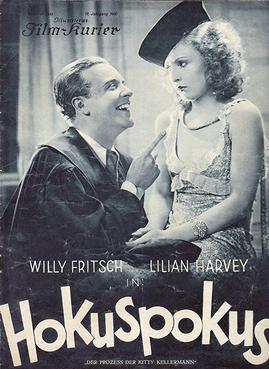
Hocuspocus is a 1930 German comedy film parallel version directed by Gustav Ucicky, starring Anglo-German Lilian Harvey, Willy Fritsch, and Oskar Homolka. It was the first adaptation of the 1926 play Hokuspokus by Curt Goetz, but used different role names.

The Three from the Filling Station is a 1930 German musical film directed by Wilhelm Thiele and starring Lilian Harvey, Willy Fritsch, Heinz Rühmann, and Oskar Karlweis. Produced by Erich Pommer, the film was a major success for the UFA studio, outgrossing even The Blue Angel. Several songs composed by Werner R. Heymann and performed by the Comedian Harmonists have remained popular up to today. The film also had a heavy influence on Hollywood musicals during the 1930s.
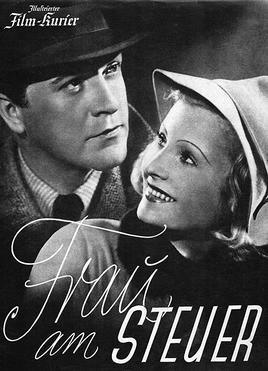
Woman at the Wheel is a 1939 German romantic comedy film directed by Paul Martin and starring Lilian Harvey, Willy Fritsch and Leo Slezak. It was the last German film featuring Harvey, who had been the leading box office star in Germany during the 1930s, although she made two further films after moving to France.

Chaste Susanne is a 1926 German silent comedy film directed by Richard Eichberg and starring Lilian Harvey, Willy Fritsch and Ruth Weyher. It is based on the 1910 operetta Die keusche Susanne composed by Jean Gilbert with a libretto by Georg Okonkowski. In Britain it was released under the alternative title The Girl in the Taxi in reference to The Girl in the Taxi in the English version of the operetta. The film's art direction is by Jacek Rotmil. It was filmed at the Johannisthal Studios in Berlin.

Her Dark Secret is a 1929 German silent comedy film directed by Johannes Guter and starring Lilian Harvey, Willy Fritsch, and Harry Halm. The film reunited Harvey and Fritsch, who had previously appeared together in Chaste Susanne (1926), although this time, their characters become a couple at the end of the film. This provided a template for a number of popular films over the following decade, such as The Three from the Filling Station. It was shot at the Tempelhof Studios in Berlin. The film's sets were designed by the art director Jacek Rotmil.

Black Roses is a 1935 German historical drama film directed by Paul Martin and starring Lilian Harvey, Willy Fritsch and Willy Birgel. A separate English-language version Black Roses was also made with Harvey reprising her role opposite Esmond Knight. She also starred in a French version. The film was Harvey's comeback in German cinema, following her attempts to find enduring success in Hollywood and then in British films. One source suggested that Harvey paid for the English version of the film to be made out of her own money, as she still hoped to break into the English-speaking market.

Three Bluejackets, One Blonde Girl is a 1933 German comedy film directed by Carl Boese and starring Charlotte Ander, Heinz Rühmann and Friedrich Benfer. It was shot at the Babelsberg Studios in Berlin. The film's sets were designed by the art director Karl Machus.
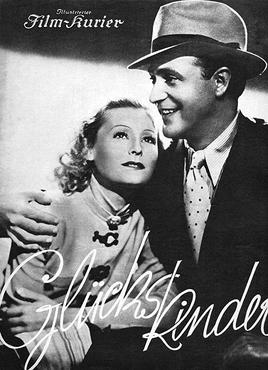
Lucky Kids is a 1936 German romantic comedy film directed by Paul Martin and starring Lilian Harvey, Willy Fritsch, and Paul Kemp. It was shot at the Babelsberg Studios in Berlin. The film's sets were designed by the art director Erich Kettelhut.

Seven Slaps is a 1937 German comedy film directed by Paul Martin and starring Lilian Harvey, Willy Fritsch and Alfred Abel. Like the earlier Lucky Kids, which had the same director and stars, it was an attempt to create a German version of screwball comedy. While the previous film had a New York setting, this takes place in London. It was shot at the Babelsberg Studios in Berlin. The film's sets were designed by the art director Erich Kettelhut. It was loosely remade in 1970 as Slap in the Face.
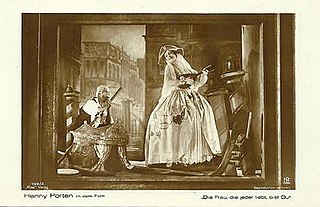
The Woman Everyone Loves Is You is a 1929 German silent film directed by Carl Froelich and starring Henny Porten, Fritz Kampers and Paul Hörbiger. The film's sets were designed by Gustav A. Knauer and Willy Schiller.
